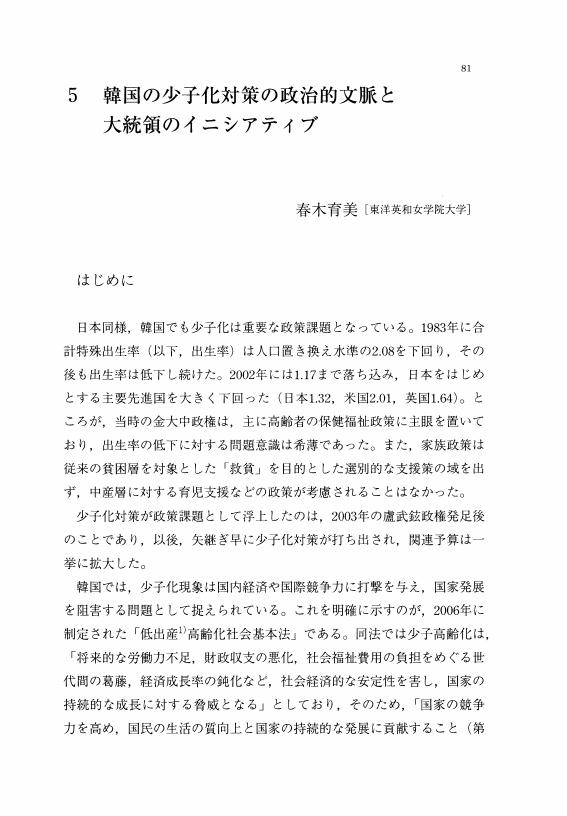1 0 0 0 OA 5 韓国の少子化対策の政治的文脈と大統領のイニシアティブ
- 著者
- 春木 育美
- 出版者
- 日本比較政治学会
- 雑誌
- 日本比較政治学会年報 (ISSN:21852626)
- 巻号頁・発行日
- vol.10, pp.81-100, 2008-09-30 (Released:2010-12-10)
- 参考文献数
- 58
1 0 0 0 IR 韓国の外国人労働者政策の展開とその背景
- 著者
- 春木 育美
- 出版者
- 東洋英和女学院大学
- 雑誌
- 人文・社会科学論集 (ISSN:09157794)
- 巻号頁・発行日
- vol.28, pp.93-106, 2011-03
The currency crisis in 1997 transformed foreign worker policies in South Korea.The government adopted a wide range of measures in order to escape from theunprecedented depression. The implementation of "the employment permit systemfor foreign workers" in 2004 and "the visiting employment system" in 2007 dramaticallychanged its stance on foreign worker policies in South Korea. Even though strictregulations were imposed on unskilled foreign workers, it was relaxed by opening theway for full-time positions with certain limitations. The considerable change in whichKorea legitimately accepted unskilled foreign workers, not as trainees, occurred dueto the severe deficiency of workers in small businesses, rapid decline in birthrate, andaging of society. Thus, there was an increasing concern for further labor shortage inthe future.
